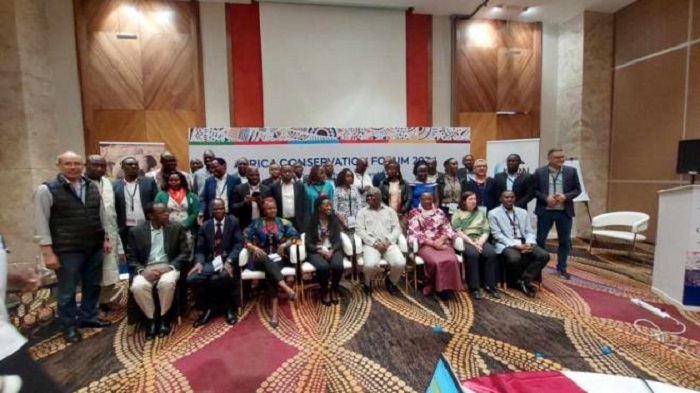Read in
Africa, with its proven agricultural and natural potential as well as rich and diversified agricultural production, is seen as the world’s future breadbasket.
However, ensuring that the continent’s agriculture is sustainable and accompanying it with nature-based biodiversity conservation measures appears to be a major challenge, said experts, managers and representatives of specialised African organisations on the eve of the International Union for Conservation of Nature (IUCN)’s 1st Africa Conservation Forum (June 26-28).
Among the challenges to achieving this goal of reconciling agriculture and environment protection, experts at a preforum held under the theme of “Sustainable Agriculture, Ecosystems Restoration” discussed the economic challenges and the lack of support for smallholders, which often makes them unconvinced of the benefits of restoration and conservation projects.
In order to motivate them and get them more involved in nature protection projects, experts called for supporting them by providing them with guaranteed economic benefits, integrating them into agricultural and development policies in general, and guaranteeing suitable markets capable of offering fair prices for their produce.
In this respect agro-ecology is considered as the best method for conserving biodiversity, maintaining soil health and restoring land.
There is also a lack of long-term funding for conservation projects, a lack of value chain components for restoration systems (reforestation, etc.), social conflicts and social and cultural challenges. In some communities, for example, reforestation projects are reserved for men only.
Access to technology is also among these challenges. African farmers do not embrace technological solutions integrated into agriculture and restoration and conservation projects. Because of the lack of knowledge and awareness, they cannot master some practices and prefer to maintain their traditional expertise, the experts added.
Taking the floor, IUCN Director General Grethel Aguilar said the environmental network, which brings together over 1,400 member associations and 16,000 experts, seeks to collaborate with governments and civil society in Africa to “support the dreams of young people” in order to transform the future of Africa and reconcile nature and progress.
Africa has a population of around 1.2 billion, with an average age of 19.
In her speech, Aguilar called for the need to work together, despite differences; harness the potential and power of agriculture to transform Africa’s future, counter climate change and achieve food security; and adopt nature-based solutions to restore land.
In this respect, she spotlighted a project supported by the IUCN in Rwanda, where restoration work through massive reforestation of 2,000 hectares has helped to reduce the impact of floods and landslides.
The Africa Conservation Forum will officially kick off on June 26.



